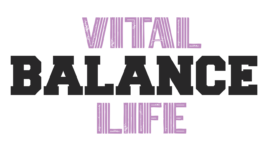If you’re planning a career in finance, you’ve likely come across two popular and lucrative paths—Investment Banking and Corporate Finance. Both fields offer exciting growth, attractive salaries, and opportunities to work on impactful financial decisions. But they differ significantly in terms of job roles, work culture, skill requirements, and long-term growth.
So how do you decide which path is right for you? Let’s break it down—and help you make a smart, informed choice. We’ll also look at the role of certifications like the Investment Banking Course, CFP Course, and CFA in shaping your journey.
What Is Investment Banking?
Investment banking is a specialized division of finance that helps companies raise capital, execute mergers and acquisitions (M&A), and provide strategic advisory services. Investment bankers work with institutional clients, corporates, and governments on high-stakes financial transactions.
Key Responsibilities:
- Conducting financial modeling and valuations
- Creating pitchbooks and presentations
- Executing IPOs and private placements
- Advising on mergers, acquisitions, and restructurings
Best suited for you if:
You thrive in high-pressure environments, love working on large-scale deals, and enjoy a fast-paced, competitive workplace.
What Is Corporate Finance?
Corporate finance refers to the internal financial activities of a business. Professionals in this field manage budgets, capital structure, financial planning, and investment decisions to ensure long-term business sustainability and growth.
Key Responsibilities:
- Budgeting and forecasting
- Strategic planning and financial analysis
- Managing capital expenditures
- Optimizing the firm’s capital structure
Best suited for you if:
You prefer a balanced work environment, long-term planning, and working within a single company to drive financial growth from the inside.
Work-Life Balance:
- Investment Banking: Known for long hours, tight deadlines, and intense deal cycles. Expect 70–100-hour work weeks, especially at the analyst and associate levels.
- Corporate Finance: Offers more structured hours and a better work-life balance. A standard 9-to-6 job is common in most companies.
Salary Expectations:
Both careers offer high earning potential, but the structure varies.
- Investment Banking: Higher starting salaries with large bonuses. Entry-level analysts in India can earn ₹10–15 LPA, with bonuses pushing total comp even higher.
- Corporate Finance: Starting salaries range from ₹6–10 LPA, but growth is steady with experience and performance.
Certifications like CFA can significantly boost your compensation in both fields.
Which Course Should You Pursue?
- Investment Banking Course: Ideal for those targeting a career in investment banking, equity research, or M&A. These programs teach you financial modeling, valuation, Excel, pitchbook creation, and real-world deal analysis.
- CFA (Chartered Financial Analyst): Best for those interested in investment banking, equity research, asset management, and portfolio management. It’s globally recognized and signals strong analytical and ethical standards.
- CFP Course (Certified Financial Planner): More suited for individuals aiming for personal finance, wealth management, and financial advisory roles. It focuses on estate planning, retirement, insurance, and tax strategies.
Growth and Long-Term Outlook
- Investment Banking: Offers steep career growth, exposure to global deals, and a fast-track to senior leadership roles or private equity. However, the high pressure may lead to burnout if not managed well.
- Corporate Finance: Provides steady growth, industry specialization, and long-term stability. Many CFOs and senior executives start in corporate finance roles.
Final Thoughts: Which One Is for You?
Choose Investment Banking if:
- You’re ambitious and analytical
- You want exposure to global finance and large transactions
- You’re ready to invest time in a rigorous Investment Banking Course or pursue the CFA designation
Choose Corporate Finance if:
- You want to work within a single organization and shape its strategy
- You value work-life balance and long-term stability
- You’re open to pursuing the CFA or a CFP Course depending on your focus
Whichever path you choose, the right certifications can help you stand out and accelerate your career. Whether it’s a specialized Investment Banking Course, the globally respected CFA, or a client-centric CFP Course, the right knowledge is your most valuable investment.




